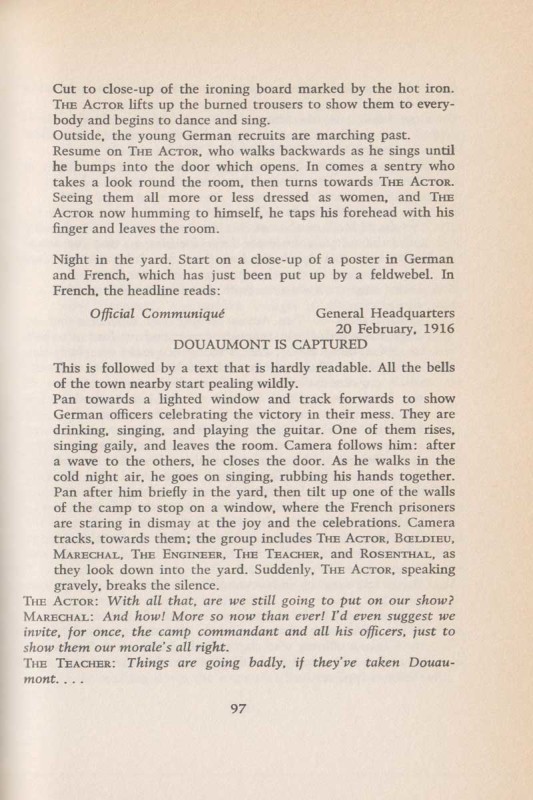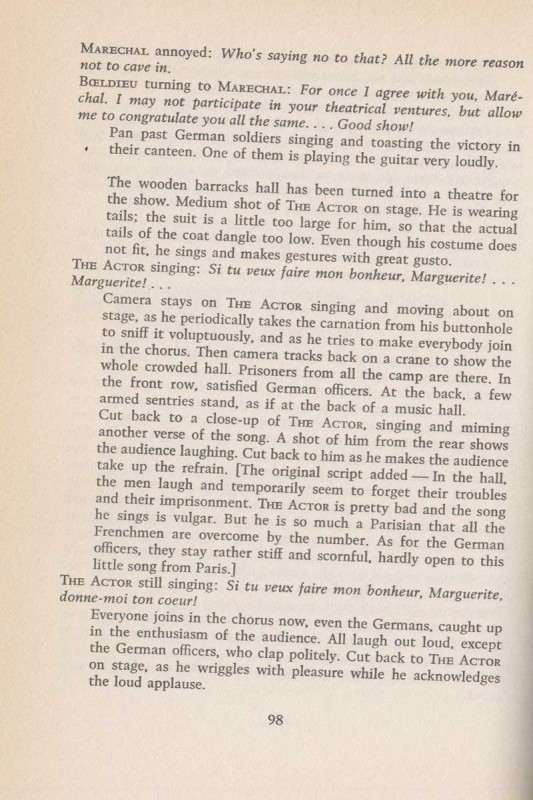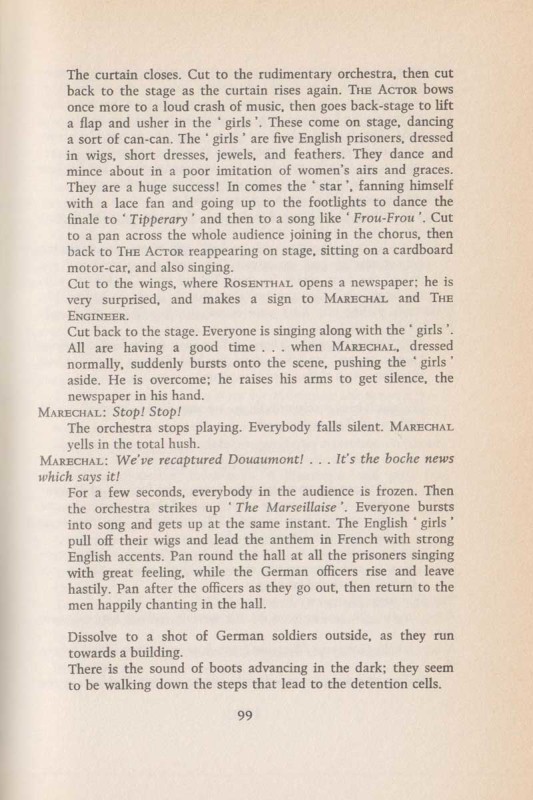SCREENPLAY 101: LA GRANDE ILLUSION
Guest blogger Greg Beal is the director of the Academy Nicholl Fellowships in Screenwriting.
How’s this for a miracle? During World War II, the negative of LA GRANDE ILLUSION (written by Jean Renoir and Charles Spaak, number 85 of the WGA's List of 101 Greatest Screenplays) was destroyed in an allied bombing raid of Paris. Or so it was thought. It turned out the Nazis had stolen the negative of the film Propaganda Minister Joseph Goebbels declared “Cinematic Public Enemy No. 1," along with hundreds of others, and moved them to Berlin. Safe in the Reichsfilmarchiv vaults, the French films survived the war (though they did detour to Moscow first, but that’s another story).
The pages excerpted below depict the film’s centerpiece scene, a song-and-dance extravaganza in drag in a German prisoner-of-war camp. Amidst the gleeful insanity, Jean Gabin’s Maréchal bursts onto the stage to announce that the French army has retaken Douaument and, to the chagrin of the German guards, the French and British prisoners leap to their feet to sing “La Marseillaise.” The exquisite moment, later reprised in CASABLANCA, is captured by Renoir’s floating camera as it sweeps past face after face of the joyous allied airmen.
In addition to its standing as one of greatest anti-war films (and as the first foreign film to be Academy nominated for Best Picture), LA GRANDE ILLUSION is also the story of humanity and understanding, friendship and sacrifice, love and loss, and class and racism. The treatment of the Jewish officer Rosenthal (played by Marcel Dalio) prefigured what was soon to escalate in Nazi Germany.
Charles Spaak’s treatment for LA GRANDE ILLUSION (reprinted in Andre Bazin’s Renoir) includes one last illusion: as they escape to Switzerland, the former mechanic Maréchal and the nouveau riche Rosenthal (Dolette in the treatment) agree to meet for dinner at Maxim’s in Paris after the war. The final, never filmed shot was to be of an empty table at Maxim’s, marked "Reserved," for these two men, such able friends during captivity and escape, apparently couldn’t overcome the strictures of class and race to meet again.
Here’s the deal: Throughout 2014, we’re posting pages from every script on the WGA’s list of the 101 Greatest Screenplays, as chosen by Guild membership, because we have every one in our library. Sure, we have other scripts that didn’t make it onto the list, either because they didn’t make the cut or because they were produced after the list was generated (presumably SHARKNADO, which we totally have a copy of, is only in the latter category).



